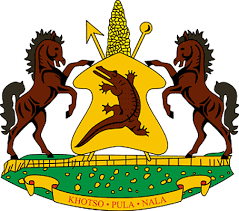Relebohile Makhetha
A legal battle that unfolded this week between the Socialist Revolutionaries (SR) and the Speaker of the National Assembly in the Appeal Court shed light on the issue of women’s representation in parliament.
At the heart of the dispute is the replacement of a female Member of Parliament (MP), ‘Mamarame Matela of SR, who had resigned, with a male candidate, Chabaseile Mabusela, of the Movement for Economic Change (MEC).
The SR, citing electoral law mandating gender balance, argued that Matela should have been succeeded by another female candidate from the SR’s Proportional Representation (PR) list.
SR has approached the Court of Appeal challenging a decision of the High Court in which it declined jurisdiction to entertain their matter.
The party had initially filed an application before the High Court seeking a review of a decision by the Speaker of the National Assembly, Tlohang Sekhamane, who swore in Mabusela as an MP in place of Matela.
Mabusela found himself on the SR Proportional Representation (PR) list after a pre-election pact was struck between the leaders of SR and the Movement for Economic Change (MEC).
This agreement, forged ahead of the October 2022 general elections, aimed to establish an alliance within the Matelile Constituency.
The electoral law stipulates that when political parties submit lists for the allocation of 40 proportional representation (PR) seats in the National Assembly, the names must alternate between male and female candidates.
This measure aims to achieve gender balance by ensuring that at least 50 percent of the 40 PR seats, out of the total 120 seats in the National Assembly, are occupied by women.
SR argued before the High Court that the law mandates 50 percent representation for both males and females. Therefore, they contended that Matela should have been replaced by a female candidate instead of a male who appeared immediately after her on the PR list.
However, the High Court, however, ruled that the matter fell under the jurisdiction of the Independent Electoral Commission (IEC), prompting SR to appeal to the Appeal Court.
Advocate Letuka Molati, representing some of the respondents, emphasised the need for SR to address their complaint in the appropriate legal forum.
Advocate Molati submitted to the Court of Appeal this week that the High Court in its ordinary sitting does not have the jurisdiction to entertain the matter. He indicated that it was through the High Court sitting as the Court of disputed returns the matter could be heard.
He argued that the matter involved issues of allocation of seats thus an electoral dispute.
Molati said it was the Court of Disputed Returns which deals with electoral disputes. He added that the conduct of the Speaker of the National Assembly can also be challenged before the same court.
He stated that the High Court was correct in declining jurisdiction but wrong in saying that SR should go to the IEC. He asked the Court of Appeal to dismiss the appeal.
Legal representative for SR, Advocate Fusi Sehapi, argued that the High Court was misdirected to have said they should go to the IEC. He said when a female MP resigns, she must be replaced by another female. Sehapi added that the Speaker of the National Assembly appointed the wrong person.
He requested the Court of Appeal to affirm the jurisdiction of the High Court to hear the matter. Additionally, he urged the court to uphold the appeal and refer the case back to the High Court for consideration by a different judge.
The appeal was heard Justices Petrus Damaseb, Moses Chinghengo, Dr. Johann Van de Westeheizen, and Philip Musonda.
Judgment in the matter is expected to be delivered on May 3, 2024.
Summary
- A legal battle that unfolded this week between the Socialist Revolutionaries (SR) and the Speaker of the National Assembly in the Appeal Court shed light on the issue of women’s representation in parliament.
- At the heart of the dispute is the replacement of a female Member of Parliament (MP), ‘Mamarame Matela of SR, who had resigned, with a male candidate, Chabaseile Mabusela, of the Movement for Economic Change (MEC).
- The party had initially filed an application before the High Court seeking a review of a decision by the Speaker of the National Assembly, Tlohang Sekhamane, who swore in Mabusela as an MP in place of Matela.

Your Trusted Source for News and Insights in Lesotho!
At Newsday Media, we are passionate about delivering accurate, timely, and engaging news and multimedia content to our diverse audience. Founded with the vision of revolutionizing the media landscape in Lesotho, we have grown into a leading hybrid media company that blends traditional journalism with innovative digital platforms.








